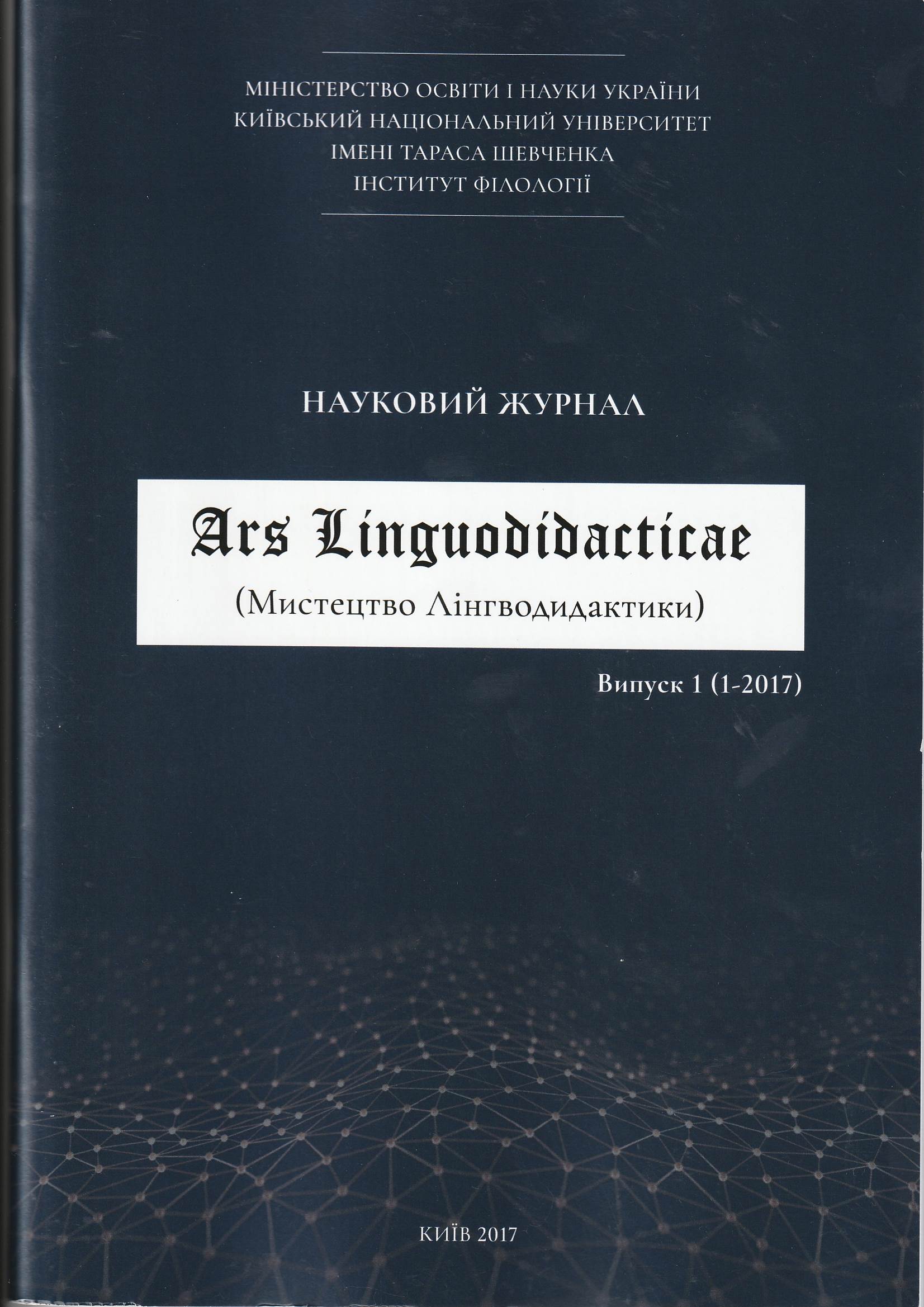THE APPLICATION OF COGNITIVE APPROACH TO DEVELOPING A SYSTEM OF EXERCISES FOR TEACHING ECONOMIC TERMS
DOI:
https://doi.org/10.17721/2663-0303.2017.1.09Keywords:
cognitive approach, explicit and implicit methods of teaching, teaching economic terms, metacognitive aspect, cognitive strategiesAbstract
Background: The urgent problem of nowadays confronted by Ukrainian higher educational institutions is to prepare high-proficiency specialists with a good knowledge of professional English for different branches of economy.
According to the cognitive approach, learning a foreign language is a conscious process that enables students to understand, learn and retain information in the long-term memory. Teaching professional terms to the students of economics with the help of cognitive methods is very important in studying English for professional purposes.
Purpose: The aim of thearticle is to analyze the most effective methods of teaching new vocabulary, based on cognitive approach, and use them as a basis for the original system of exercises for teaching economic terms.
Results: Cognitive approach to vocabulary teaching emphasizes explicit teaching of not only new words meanings but also developing metacognitive strategies that will help students work with unfamiliar words.
Classroom vocabulary teaching activities are explicit in nature. The most effective vocabulary teaching strategies encompass building a large sight vocabulary, integrating new words with the old, providing a number of encounters with the new vocabulary, promoting a deep level of processing, using a variety of techniques and encouraging independent learner strategies.
Implicit vocabulary teaching emphasizes the development of independent learner strategies for identifying, understanding and retaining new words in the long-term memory.
One of the most effective methods of teaching economic terms is qualia structure that reveals the protean properties of the concept.
Discussion: Explicit together with implicit methods of teaching vocabulary as the elements of cognitive approach could be used as a basis for the system of exercises for teaching students economic terms. We plan to develop a model of an educational process for teaching economic terms based on the principles of cognitive approach.References
Davidko, N. Cognitive approach to teaching ESP. Web. 21 Nov. 2016.
Harvey S. and Goudvis A. Strategies that work: Teaching Comprehension to Enhance Understanding. York: Stenhouse, 2007. Print.
Kelly P. Guessing: No substitute for systematic learning of lexis. System. 199–207. Print.
Pressley M. Metacognition and Self-Regulated Comprehension. What Research Has to Say about Reading Instruction. Newark: IRA, 2002. 291–309. Print.
Pressley M., Levin J. R. and McDaniel M.A. Remembering versus inferring what a word means: Mnemonic and contextual approaches. Hillsdale, N.J.: Lawrence Erlbaum, 1987. 107–123. Print.
Nation, I. S. P. Learning Vocabulary in Another Language. New York: Cambridge University Press, 2001. Print.
Nation, I. S. P. Teaching and Learning Vocabulary. Boston: Heinle and Heinle Publishers, 1990. Print.
Schmitt, N. Vocabulary in Language Teaching. Cambridge, New York: Cambridge University Press, 2000. Print.
Schmitt, N. Vocabulary learning strategies. Vocabulary: Description, Acquisition and Pedagogy. Cambridge: Cambridge University Press, 1997. Print.
Sokmen, A. J. Current trends in teaching second language vocabulary. Vocabulary: Description, Acquisition and Pedagogy. Cambridge: Cambridge University Press, 1997. Print.
Downloads
Published
How to Cite
Issue
Section
License
Copyright (c) 2017 Рита Мельник

This work is licensed under a Creative Commons Attribution-ShareAlike 4.0 International License.
This work is licensed under a Creative Commons Attribution-NonCommercial 4.0 International License.
Copyright policy according to the terms of the license: Creative Commons "Attribution-NonCommercial" 4.0 International (CC BY-NC 4.0).
Authors who publish their articles in "Ars Linguodidacticae" (Open Access Journal) retain the following rights:
- The authors retain the copyright of their article and grant the Ars Linguodidacticae journal the right to first publish the manuscript of their article under the Creative Commons (CC BY-NC 4.0) Attribution License, which allows others to freely distribute the published work with mandatory reference to the author of the original work and first original publication in the Ars Linguodidacticae journal. An indication of the retention of the copyright of the work is provided on the title page of the article.
- The authors reserve the right to enter into separate contracts for the non-exclusive distribution of their article as published in Ars Linguodidacticae (e.g., placing the article in electronic libraries, archives and catalogs or publishing it as part of institute collections and monographs), provided that a full reference to the first original publication in Ars Linguodidacticae is given.
- The policy of the "Ars Linguodidacticae" journal allows and encourages authors to post a manuscript both before and during editorial processing, as this promotes productive scientific discussion and has a positive effect on the speed and dynamics of citing the article.
The editorial board reserves publishing rights to:
- the collated original articles and to the entire issue of the journal.
- the design of the journal and original illustrative and supplementary materials.
- the reprint reprints of the Journal in printed and electronic form.
The copyright policy is carried out according to the terms of the license: Creative Commons "Attribution-NonCommercial" 4.0 International (CC BY-NC 4.0).
For more information, please read the full text of the CC BY-NC 4.0 Public License.
Creative Commons Attribution-NonCommercial 4.0 International License.


